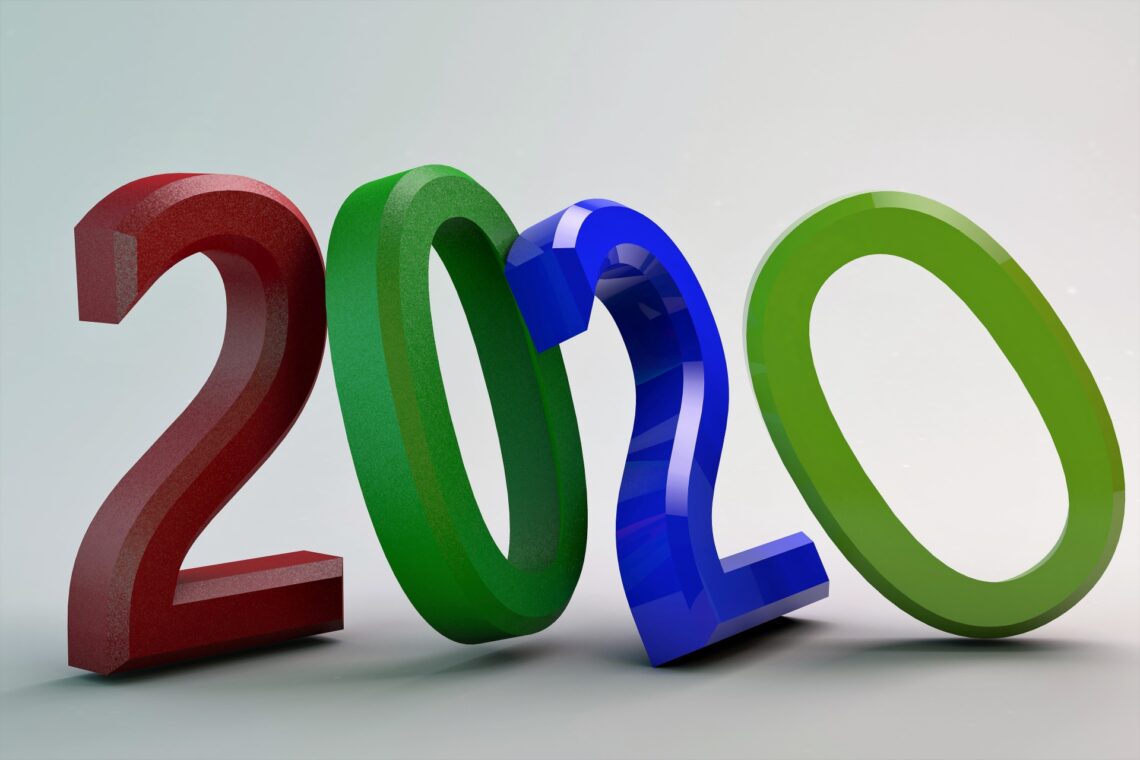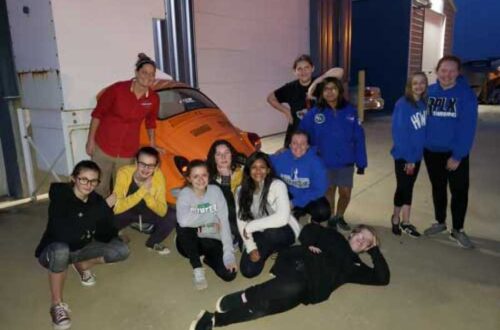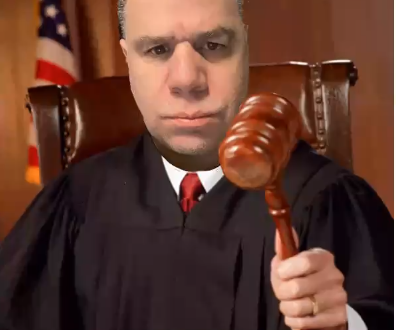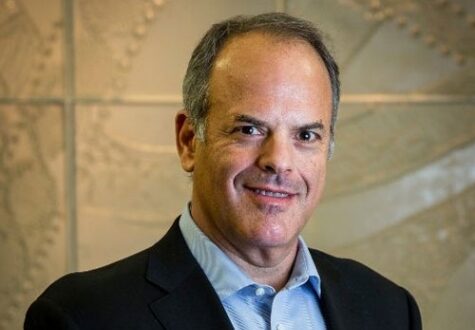
2020 Collision Repair Industry: A Year in Review
It’s undeniable that 2020 has been a year for the history books – the amount of change that has taken place over the past 12 months is unprecedented and has been disruptive in every imaginable way. As 2020 comes to its conclusion, the world reflects on the year’s events, and a handful of collision repair industry leaders share their thoughts on the most impactful memories for their associations in 2020.
The largest force this year has been the spread and attempts to prevent further spread of COVID-19. This has translated into many virtual events, and Zoom has become much more than onomatopoeia, with nearly every association adopting the new normal. “The Automotive Women’s Alliance Foundation (AWAF) was able to quickly pivot to virtual events after the start of the pandemic, which enabled us to continue to serve our members,” shared Susan Rokosz, the association’s president. “From happy hours to professional development events, going virtual enabled us to remain connected to our members. AWAF also committed to increasing the diversity of both the membership and the Board, and we are working to increase diversity in the talent pipeline for the automotive industry.”
When ASA Northwest’s ATE 2020 had to be canceled a week and a half before the event due to COVID restrictions, the association’s leaders “went into scramble mode and canceled our live event with over 1000 attendees,” shared ASA Northwest President and Executive Director Jeff Lovell. “We knew we needed to keep our ASA Northwest members engaged and let know that we are here for them, so we started having Zoom Meetings, called Lunch and Learn, with members every week to keep them updated on the latest information. ASA Northwest has adapted to the new technology and was the first automotive trade association to do a full-blown virtual training event with the help of Advance Professional, CTI-WTI, and Worldpac. We hosted the first Virtual ATE in August with 32 classes and close to 200 attendees for all over the world, it was truly amazing to put that together.”
COVID-19 also provided an opportunity for associations to find new ways to support their members, outside of virtual training. Diana DeLeon, Executive Director of ASA-AZ, recounted, “This year, our biggest impact for members was partnering with Alerus Bank, a small local bank, to help shop owners apply for and receive their much-needed Paycheck Protection Program loans. Many members submitted applications to larger banks with no success, so we were very happy to have this relationship in place to help.”
“The opportunity to offer our members-only an exclusive health insurance plan was most memorable for AASP/NJ; we partnered with World Insurance, a global leader in benefits, and more members participating will help lower our group rate, something individual shops can’t do,” Jerry McNee, president of AASP/NJ shared. “With a potential average saving of 30% and annual premiums increasing yearly offering an option for members to save thousands of dollars in premiums, this is a welcome benefit, considering all other yearly increases within our businesses – this is truly a game changer, helping our members. COVID-19 has affected everyone, so having the ability to offer a health plan that benefits members in a positive way is outstanding.”
Sandy Blalock, Executive Director of the Automotive Recyclers Association (ARA), shared, “Since March 2020 as COVID-19 hit the United States and began to shut down the country, ARA went into high gear to stay ahead of the situation. This multi-pronged, proactive response is the most important thing ARA accomplished this year and included many parts. With the assistance of amazing industry partners, we created an automotive recyclers COVID Relief Fund, with over $46,000 distributed to auto recyclers in need. Through active regulatory work and connections with policymakers, ARA ensured that Automotive Recyclers were an ‘Essential Business’ to continue operating through the pandemic, and the association acted as a watch dog of all COVID legislation, for both the states and federal government, as well as providing members with information to help them navigate the crisis.”
ARA also “partnered with the U.S. Chamber of Commerce’s COVID Liability Coalition to educate Congress about the need for businesses to have liability protections related to COVID-19 and to urge Congress to pass legislation that would protect businesses from liability associated with COVID-19,” Blalock added. “In addition to creating a COVID-19 dashboard on our website with federal and state guidelines impacting the industry, ARA put together a guide detailing important information relating to the SBA’s Economic Injury Disaster Loan (EIDL) program. This guide provides background information on the EIDL program and also describes its costs and benefits.”
Adapting to change was a huge theme among industry associations this year, as it has been for shops. According to Judell Anderson, Executive Director of AASP-MN, “Just as our members did, AASP-MN had to quickly shift gears in response to the impact of the coronavirus pandemic. Members turned to the association like never before to get the information they needed to navigate this new environment and maintain their business operations. The Alliance responded by providing ongoing member updates containing ‘need-to-know’ information about COVID-19 related legislation, regulations and other measures relevant to auto service & collision shops.
Anderson continued, “We also connected shops to share experiences, best practices and lessons learned for adapting business practices due to COVID-19, and we moved networking events and educational programming to virtual platforms. Another highlight would be the release of our membership video, which features authentic and sincere testimonials about what it means to be a member of the Alliance. It reinforces the work that we do each day to be their champion and their ally.”
The Collision Repair Education Foundation (CREF) had to really “think outside the box when it came to fundraising and how we can continue to support collision school programs in 2020,” shared Brandon Eckenrode, Director of Development for CREF. “Instead of holding physical career fair events, our team quickly coordinated online presentations with companies to help instructors with industry guest speakers for their students. We also helped communicate which companies opened up their online technical training to help instructors with industry resources.”
“With regards to fundraising, we had to be respectful and sensitive of what companies were going through when asking both annual and new partners for funding. Our insurance partners and their 2020 support essentially saved CREF by being able to continue to support us. Also, we got creative by utilizing our industry member partnerships with their ‘celebrity’ brand ambassadors, connections and create unique auctions and fundraiser initiatives,” Eckenrode continued.
CREF wasn’t the only industry association focused on the next generation of technicians in 2020. The Women’s Industry Network (WIN) Chair Cheryl Boswell said, “I am proud of WIN for stepping up and continuing to focus on our goals during this unusual year. WIN ‘Resourced the Industry’ by sponsoring uniforms for 100 vo-tech women students and by conducting a survey to understand the collision repair technician pipeline and how to attract and retain technicians. WIN ‘Strengthened the Network’ by offering seven educational webinars, and by launching the first WIN-developed technical class. In the true spirit of WIN, it was an honor to celebrate 12 Scholarship recipients and three Most Influential Women in 2020.”
In a year ravaged by turmoil, many associations are celebrating their survival and their ability to keep members informed about the ongoing changes. “Through our leadership, we managed our operations and finances well, like many other companies, through an unknown virus and its impacts on our members, the aftermarket industry and the Association itself,” Rodney Pierini, President and CEO of CAWA, noted.
Lovell recalled, “Our first thought was how can we help the ASA Northwest members during this time. Within a week, we were able to turn our ASA Northwest website into a resource center for members to get information on COVID-19. Our regional allied member Integrated Claims Management worked with us to make sure ASA Northwest was the place to turn for information.”
According to AASP/MA Executive Director Lucky Papageorg, “One of the most important things we have been able to do is keep our membership informed of all the issues regarding running their business in the shadow of the COVID crisis. This is important because our members and their customers are our number one concern as they are the reason we exist as an association. We are here to protect their interests in the insurance claim and repair process.”
“ASA Arizona made sure our members were updated almost daily with changing information as we all navigated through the unknown of COVID-19,” DeLeon added. “Offering members online meetings and networking was a success to keep everyone connected when we couldn’t be together. We took an extra step to reach out and offer all these connections and information to shop owners in our surrounding states.”
“2020 has definitely been a challenging year for everyone,” said Cathi Webb, Executive Director of the Northwest Automotive Trades Association (NATA). “Between COVID, the riots in Portland, and the election year, we have encountered a lot turmoil here in the great Northwest. The most memorable event for our members is the fact that the automotive industries were deemed essential businesses. Our Association members stayed strong and some members had their best months during this COVID shutdown. NATA members were blessed that we could all stay in business. My heart goes out to all the small businesses that had to close because of COVID and then could not reopen.”
Despite everything, some associations managed to grow in 2020. The Carolinas Collision Association (CCA) was formed from the merger of the NCACAR and the SCACAR. In addition to combining the two associations, “we added 20% new members and retained 98% of our current membership,” stated CCA Executive Director Josh Kent. “We established a Code of Ethics, and we put together a consumer, legal and trade school committee.”
Kent recently assumed the executive director’s role for the Tennessee Collision Repairers Association (TCRA). He shared, “We rejuvenated TCRA and added 25 more people to our membership. We started a new website, added training videos, and hosted our first quarterly meeting this year.”
According to James Rodis, Vice Chair of the Nebraska Auto Body Association (NABA), “The NABA had a Great year!!! We more than doubled our association size, plus added some amazing shops that are now part of our committees. Our vender committee has blown our expectations out of the water, offering us a completely different perspective. We interviewed lobbyists this year and are proud to say we have hired Plucker/Kelley to represent the association and push some legislation for our members and guests. Due to COVID, we were not able to have our Annual Education Day, so we opted for a great series of seven virtual events, in collaboration with KABA, that will feature great names like Kristen Felder, Mark Olsen, Tim Ronak, GM, Ford and even Rivian at the start of next year.”
Legislation is always an important effort that associations make on behalf of their members, and although 2020 presented even more challenges in this respect than normal, leaders’ devotion to doing the right thing for consumers fortified them in their battles. The Auto Body Association of Texas (ABAT) developed customer complaint forms to be sent to state legislators and the Texas Department of Insurance (DOI). ABAT President Burl Richards explained, “Legislators need to know that their constituents aren’t being indemnified properly for safe and proper repairs, and it helps educate the customer on the issue.”
CCA was also “able to pass legislation on towing and storage, preventing changes to the wording,” Kent said. “We also created a consumer page with videos and simple education regarding a customer’s rights and the difference between OEM and non-OEM parts.”
For Bob Amendola, the president of the Auto Body Association of Connecticut (ABAC), the year’s most exciting success was when “our association’s legal counsel, Attorney John Parese, helped national efforts to successfully preserve the 1963 Consent Decree.”
The collision repair industry changed and developed in a variety of ways in 2020, and the experiences gained have positioned the industry’s associations to continue enhancing their membership benefits, training opportunities, efforts on behalf of the next generation, and legislative initiatives as 2021 rolls around.
Autobody News looks forward to continuing to provide all the latest association news in 2020. Happy holidays from our family to yours!



